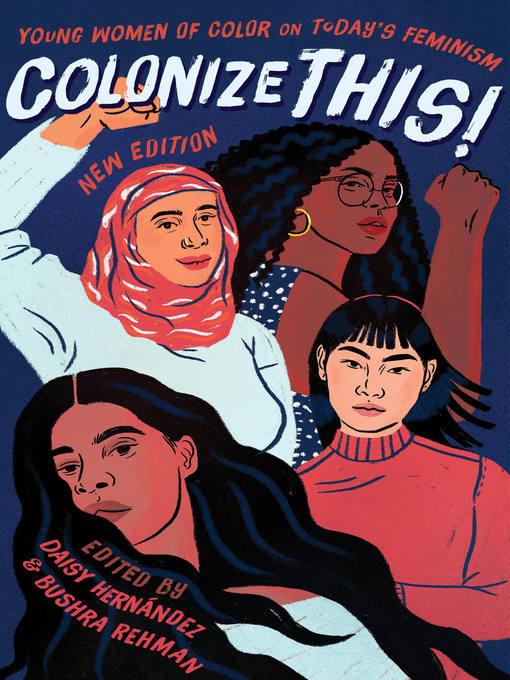
Colonize This!
Young Women of Color on Today's Feminism
کتاب های مرتبط
- اطلاعات
- نقد و بررسی
- دیدگاه کاربران
نقد و بررسی

August 12, 2002
Ms. magazine columnist Hernandez and former Muslim poet Rehman, both feminist activists, have assembled a broad collection of essays by young women writers, academics, and activists from a range of cultures and sexual orientations. A few essays have a very specialized focus, describing such experiences as a Chicana with HIV and a Native American woman participating in the typically male War Dance ceremony. More often the contributors look more generally at their lives and families and consider how these experiences have influenced their understanding of feminism. Several writers critique "white, middle class feminism" for failing to take into account the impact of classism and racism on women of color. One essay discusses the impact of gentrification on poor, single mothers; another tells of the author's immigrant mother turning to sex work to support her daughters. Cultural and religious customs are discussed by a Nigerian woman who comes to the United States for college and by an Indian American woman who is expected to pursue an arranged marriage. These are very personal, interesting, and readable essays. Recommended for large public and academic libraries. JDebra Moore, Cerritos Coll., Norwalk, CA
Copyright 2002 Library Journal, LLC Used with permission.

August 1, 2002
\deflang1033\pard\plain\f3\fs24 Daisey Hernandez and Bushra Rehman, self-described as a "Catholic Cuban-Colombian girl from New Jersey" and a "Pakistani Muslim girl from Queens," offer various perspectives--their own and others--of life lived as young feminists of color, exploring commonalities and cultural differences and examining macho cultures and American capitalism. The collection takes its title from an essay by Cristina Tzintzun, whose Mexican mother and white father personified the colonial experience. The essays explore four major themes: family and community; mothers; cultural customs; and talking back to white feminists, men, mothers, liberals, and others. These women express a more radical, racialized feminism that broadens the movement beyond its early incarnation. (Reprinted with permission of Booklist, copyright 2002, American Library Association.)

























دیدگاه کاربران